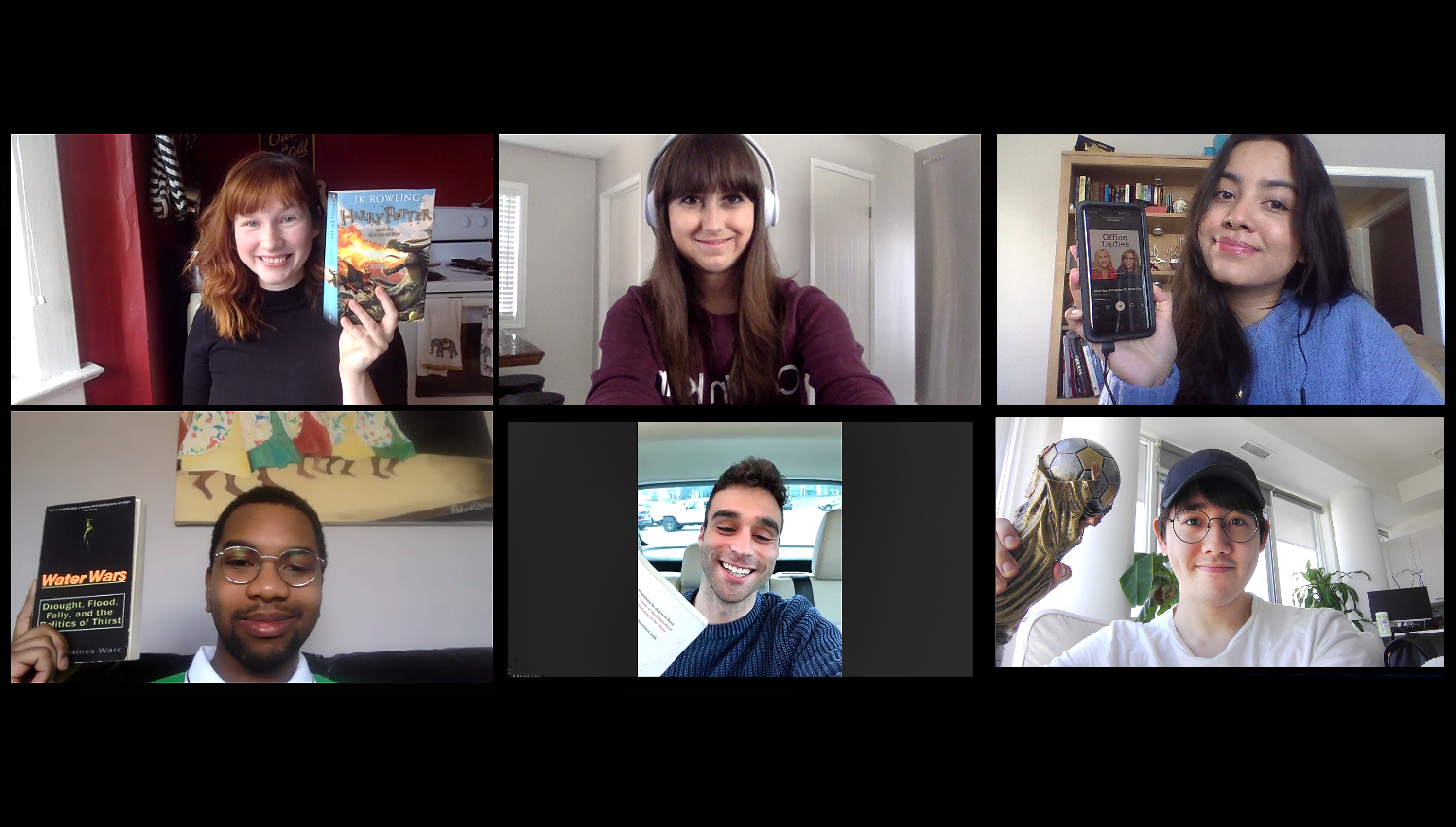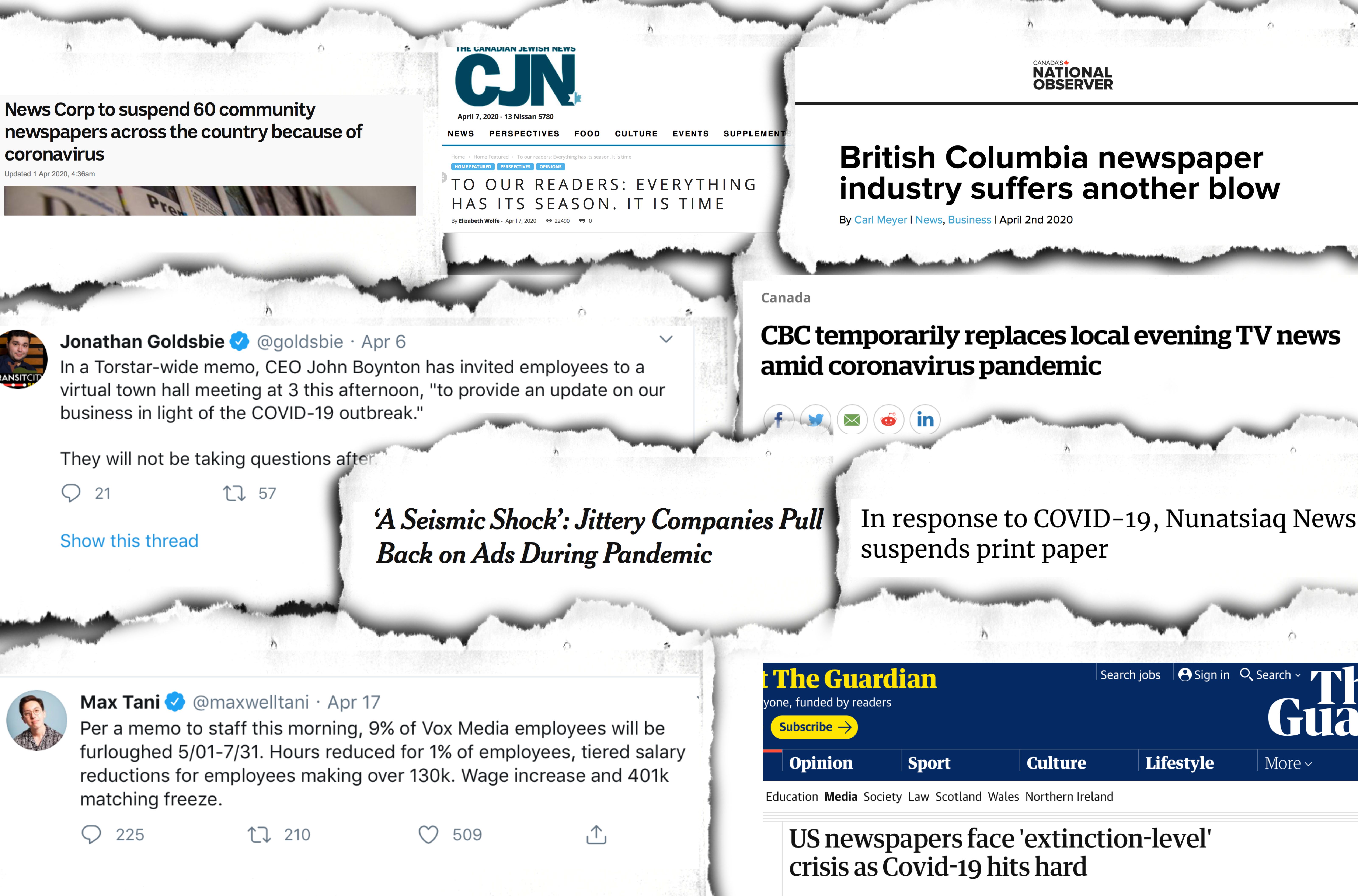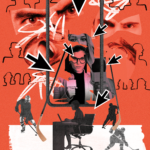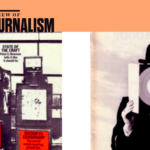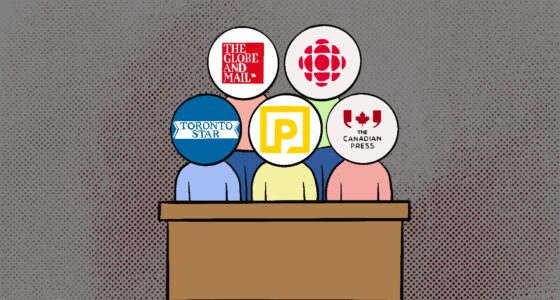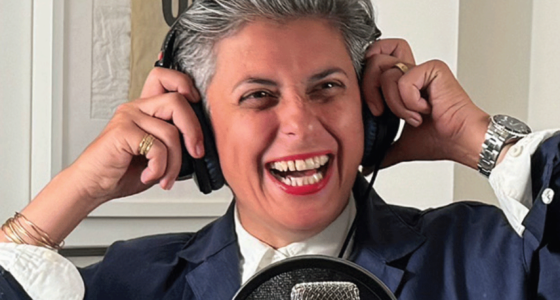What the Review masthead is reading, watching, and listening to during the pandemic: Part 3
Mitchell Consky is the print production editor at the Ryerson Review of Journalism. He has previously worked with CBC’s The Fifth Estate and Wilfrid Laurier University’s student newspaper, The Cord.
Recently I’ve been going back in time with some early-2000s New Yorker articles. One of my favourites is Malcolm Gladwell’s “The Ketchup Conundrum,” published in 2004. In it, Gladwell poses a seemingly simple question: Why does Heinz Ketchup dominate all other ketchup brands? He points out that for every other condiment, there are multiple options competing for shelf space, thanks to a wide range of consumer preferences. (Some grocery stores have full aisles just for different types of mustard.) Yet, with ketchup, Heinz wins by a landslide. Gladwell unravels the historical evolution of the goliath ketchup brand, exploring how it triggers, in equal measure, all five fundamental tastes—sour, sweet, salty, bitter, and umani—on each section of the human palate, and how the flavour notes harmonize with a seamless grace he equates to an orchestral crescendo. He speaks to ketchup entrepreneurs, consumer psychologists (including the guy who invented the concept of Diet Coke), and even ketchup scholars (yes, those exist). The answer is never provided. Nobody knows why other brands can’t defeat Heinz. But the convoluted depth of the question is fascinatingly illuminated. I’ll never eat ketchup the same.
(Also, does anyone remember when Heinz rolled out a line of colourful ketchups in the year 2000? Was that Heinz’s attempt at offering variety? How did they think colours called ‘Blastin Green’ and ‘Funky Purple’ were a good idea? These are the questions that keep me up at night.)
Grace Wells-Smith is a senior print editor at the Review. She is also the interim managing editor at The Dance Current, and has been published by CBC and Intermission.
I’ve been tuning in to CBC every morning for “PMT”—what my sister and I have dubbed CBC’s special 11:00 a.m. EST coverage with Rosemary Barton. It means “Prime Minister Time,” and it signals the breakfast-making hour. During the pandemic, my days have become routine-less. I find the structure of PMT comforting. Making breakfast while we listen to Rosemary Barton interview people about their daily experiences during COVID-19 helps us keep some semblance of a schedule.
I’ve also been re-reading the Harry Potter series all the way through. I’ve read the books before but never back-to-back. I’m currently on the Goblet of Fire. I can’t really explain my desire to embark on this journey. About ten days into self-isolation, and without thinking about it too much, I ordered a box-set to my house. Maybe it’s the nostalgia or the fact that whatever Harry faces is worse than me having to stay home, but the series is bringing me a lot of happiness.
It’s also paid off—I competed in an online Harry Potter trivia night with my cousins and we came in 28th out of 300 teams. So, time well spent, obviously.
Sukaina Jamil is the conference editor at the Review. She has previously worked as the editorial director of Kaleidoscope and as a reporter and content editor for Alma Latina Online Magazine.
As someone who constantly re-watches The Office (U.S.) instead of starting any new TV shows, I thought I would take this time in self-isolation to finally switch it up. So I started listening to the Office Ladies podcast. Hosted by Jenna Fischer and Angela Kinsey, who played frenemies on the show but are best friends and business partners in real life, this podcast dissects each episode of the series one by one. I don’t think there’s anything better than hearing about the behind-the-scenes shenanigans that took place on one of your favourite shows in an effort to suppress the ever-present fear of impending doom!
All jokes aside, I think this experience has helped me realize that there’s no shame in trying to make yourself feel better by indulging in lighthearted entertainment. At first, I felt guilty and nearly incompetent whenever I saw others using their isolation time to engage with or create intellectual content. By comparison, I found myself struggling to gather the motivation to complete my assignments. But if watching a funny show or listening to a podcast is what makes the day go by, there’s nothing wrong with that.
Plus, it’s always a good feeling when you can share what you learned about the icon that is Steve Carell-as-Michael Scott with all of your friends and family—whether they asked you to or not. Did you know that Michael getting emotional during the closing ceremonies of the Office Olympics episode wasn’t scripted? Kinsey and Fischer said the moment played out so beautifully that they broke character during filming and teared up themselves. Not gonna lie, hearing that made me sniffle a bit, too.
Tanja Saric is the podcast producer at the Review. She is a freelance digital producer at ET Canada and has previously written for the Waterloo Chronicle, the University of Waterloo’s Imprint newspaper, and RiffYou.
Whether I’m stressed, happy, sad, mad, or in the middle of a global pandemic, I always have music blasting in my house. In fact, I really can’t focus or get much done without spinning my favourite records. Music helps me relax. It eases my anxiety in times of uncertainty. People say this all the time, but music is, without a doubt, my therapy.
While self-isolation has given me the opportunity to discover new artists that I love, it also means that all the concerts I was looking forward to this spring and summer were, sadly, cancelled. With nowhere to go and no live music to listen to, I’ve turned to Instagram to satisfy my concert addiction. Never have I been more thankful for the social media platform than I am right now. A lot of artists have taken to the Instagram Live feature to keep in touch with fans and put on remote performances. Electro-pop star Lights has been playing virtual concerts for her followers from her home studio. Pop singer Scott Helman has been hosting what he calls “The Not-So-Isolated Live Stream Party.” Every Friday night at 8 p.m., my favourite band, The Trews, uses Facebook and Instagram to play tunes, answer questions from fans, and even teach the chord progressions from some of their songs, from the comfort of their living rooms. Live streams have allowed me to not only stay connected to the thing that interests me the most—music—but have also given me something lighthearted and fun to look forward to.
For any fellow music buffs out there, I would highly recommend Canadian rock band the Arkells’ daily live stream called the “Flatten the Curve Music Class,” where band members teach fans how to play one of their songs on the guitar every day at 1 p.m. In addition to being an actual music class, lead singer Max Kerman also answers questions about how the songs came to be. Even if you’re not a musician, this is a great way to learn more about music. It might even inspire you to pick up a guitar. What better time to learn to play an instrument than during a pandemic?
Keep calm music fans, we will one day have concerts again.
Daniel McIntosh is co-chief copy editor at the Review and a researcher for the Department of Student Affairs at Ryerson University.
I’ve found that I have a “damned-if-I-do, damned-if-I-don’t” balance to consuming pandemic news. Too much sends me into a spiral, but turning away leads to anxiety over what I’m missing. Advice columns, including Slate’s “Care and Feeding” and The Outline’s Ask a Fuck-Up (AAFU), are a happy medium. They’re not really news, but they are adjacent to it. I couldn’t be further from the target audience of Slate’s parenting column and yet… choosing sides in the internal factions between parents and their children, their neighbours or their own parents, is as gleeful as subtly eavesdropping on an argument on the subway.
Some samples: “My Friends Teenage Kids Still Don’t Know They’re Adopted,” “Playing With Fire,” and “I Need Some Alone Time.” In one column, an anonymous advice-seeker describes the discovery of their child’s gently-misshapen head as “living a parent’s worst nightmare.” For the more serious issues, the column leans on a panel of educators and experts—there’s a learning element as well. AAFU, on the other hand, is a must-read for any FUs out there. Brandy Jensen’s acerbic responses to prompts like “My girlfriend’s mother wants a store-bought Thanksgiving,” and “I’m not as smart as everyone said I was,” will not make you feel better about your lot in life. Instead of the typical wisdom you might expect, she offers commiseration: “If everyone in the room is gifted, then nobody is,” Jensen advises in one column.
Glimpsing into the comparatively small-time annoyances between partners and family members found within these columns is a salve for the collective COVID-19 chaos happening just outside our homes.
Lucas Lee is co-chief of research at the Review and a freelance journalist.
“People ask me what I do in winter when there’s no baseball. I’ll tell you what I do. I stare out the window and wait for spring.” – Rogers Hornsby
As our very talented editor Hannah Alberga pointed out, comfort is in high demand in periods of uncertainty. Celebrity cook Alton Brown said in a 2018 interview on the YouTube series Hot Ones that ratings for cooking shows experienced an unprecedented spike after 9/11. To me, though, it was never a rerun of The French Chef or the Rachael Ray Show that eased the spirit. It was baseball.
Baseball is a game of anticlimax. Every day, for six months, nine players stand in their section of the field, stationary, waiting for something to happen—for the ball to find its way to them. Most of the time it doesn’t. The other nine players stand waiting for their turn. It’s a game of routine, where failing two-thirds of the time makes you great, but three-fourths makes you expendable. It’s been this way for two hundred years, and it’ll be this way for two hundred more. It’s boring to some, but it never purported to be exciting. It only ever purported to be what it is.
I’ve been reading a book called The Only Rule Is It Has to Work: Our Wild Experiment Building a New Kind of Baseball Team by journalists Ben Lindbergh and Sam Miller. The pair were given the chance to run the Sonoma Stompers, an independent minor-league baseball team in California. As statheads, they ran the team’s baseball operations, making decisions about player personnel and in-game strategy according to customized sabermetrics. But there’s a deeper, more epistemic layer to the book.
It’s the sports equivalent to a politics reporter suddenly being afforded the opportunity to be mayor of a town. As journalists, it’s easy for us to observe, to offer critiques of the status quo. It’s another thing altogether to put our opinions into practice. Even if you’re not at all interested in baseball, this book is worth a read, for the questions it answers about credibility.
As for me, I just needed to consume something related to baseball. As of this writing we’ve been quarantined for more than a month. I can see the buds returning to the branches, the odd jogger out in a T-shirt and shorts, the world coming to life again after winter. Yet I find myself sitting at home, staring out the window, still waiting for spring.

